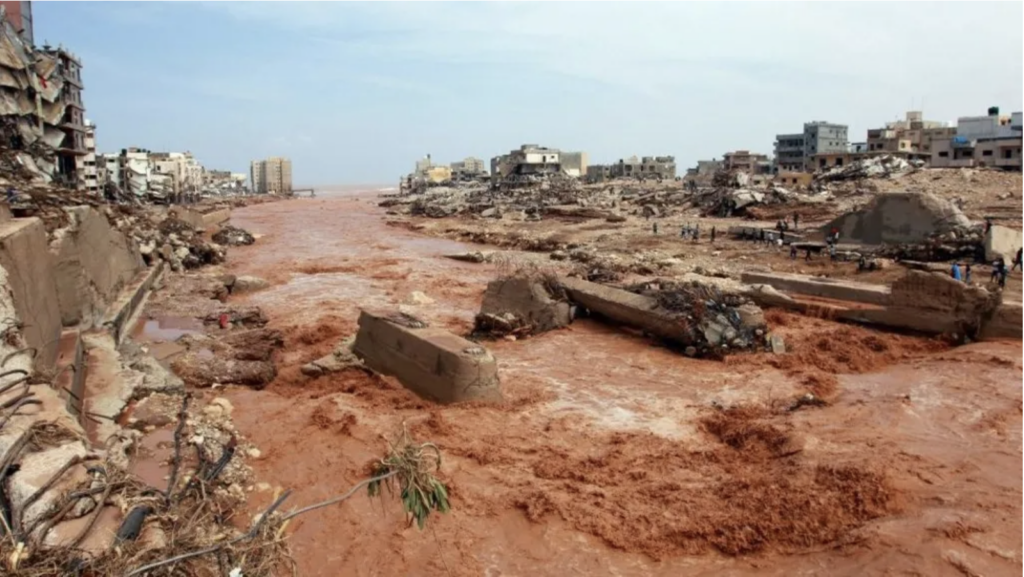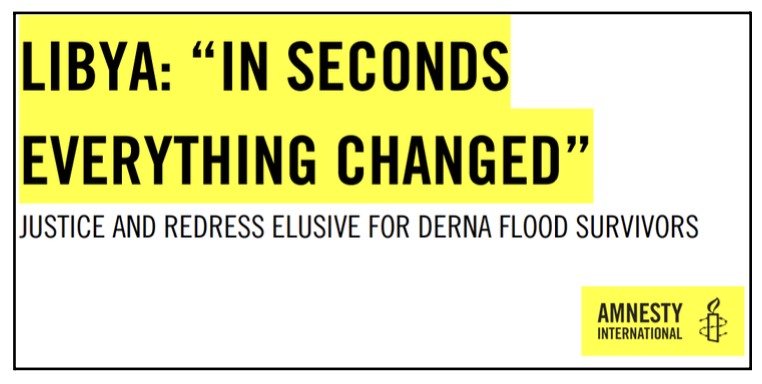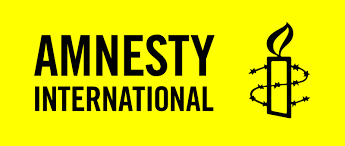Libya’s Derna Dam Collapses: Human Rights Concerns in the Crisis Response
AUTHOR: Antía Kornführer Romay
Six months ago, the city of Derna in eastern Libya experienced catastrophic flooding after Storm Daniel, triggering the collapses of two dams upstream of Derna.
Six months since the devastating floods killed at least 4,352 people and left thousands of others missing.
Six months of human rights concerns during Libya’s crisis management in response to the dams’ collapses.
Libya’s political landscape: Fragmented governance amidst Storm Daniel
For years, Libya has remained fragmented between two competing entities contending for legitimacy, governance and territorial control, each supported by numerous militias and armed groups. The Government of National Unity (GNU) controls the capital Tripoli and most of western Libya, while the Government of National Stability (GNS), aligned with the self-proclaimed Libyan Arab Armed Forces (LAAF), controls the majority of eastern and southern Libya, including Derna and other areas affected by the flooding disaster.
Storm Daniel hit the north-eastern coast of Libya on September 10, 2023, causing heavy rainfalls that led to the collapses of two dams, the Abu Mansour Dam and the Derna Dam, also known as Al-Belad Dam, at 2:50AM on September 11. The Dams, constructed in 1973 and 1977, proved incapable of enduring the intense rainfall brought by Storm Daniel, whose extreme weather events can be associated with anthropogenic climate change.
Despite Libya’s commitment as a state party to core international treaties like the International Covenant on Civil and Political Rights (ICCPR), which safeguards rights such as the right to life and freedom of expression, freedom from discrimination and arbitrary detention, Amnesty International identified numerous human rights concerns in Libya’s crisis response that demand immediate attention.
Addressing Human Rights Concerns during Libya’s Crisis Response
Following the flooding disaster in Derna, public anger surged due to the conflicting instructions and messages preceding the storm. These included a lack of clear evacuation instructions for high-risk areas, the imposition of curfews on people living in affected areas, and overall deficient disaster preparedness marked by insufficient risk reduction protocols. The World Meteorological Organization concluded that the tragic loss of life in Derna could have been prevented if appropriate warnings and evacuation measures had been implemented.
The rushed burials of thousands of bodies in mass graves, intended to prevent the spread of infections and diseases, became a human rights concern due to the authorities’ failure to implement victim identification measures before burial. The lack of identification presents significant challenges, including the failure to fulfil the survivors’ right to timely information about their missing relatives. This can result in long-lasting mental distress for family members. The lack of death certificates also creates bureaucratic hurdles for survivors in accessing available assistance like widow pensions.
Both the GNU and the de facto authorities in the east failed to ensure equitable and timely access to relief and rehabilitation measures without discrimination for all internally displaced people and others affected by the flooding. Many displaced individuals from Derna to western Libya were left uncompensated, while some families, fearing reprisals from the LAAF due to their actual or perceived opposition to the LAAF, refrained from claiming compensation.
According to the IOM, before Storm Daniel, around 8,670 foreign nationals resided in the city of Derna, hundreds of whom are presumed to have died in the floods. Refugees and migrants affected by the disaster encountered discrimination in accessing compensation and support, with authorities neglecting their specific circumstances and needs. This included the failure to assist in evacuations from affected areas, the failure to facilitate the returns to their home countries, and omitting the provision of information about the deceased or missing individuals to their relatives. Furthermore, as Libyan law deems the irregular entry and stay of foreign nationals as criminal offences, foreign nationals who lost their identity documents during the floods became increasingly vulnerable to arbitrary arrests and detentions.
Ensuring Human Rights in Disaster Response and Recovery Efforts
A human rights-compliant approach, prioritising the needs of at-risk groups, such as Derna residents displaced to western Libya, refugees, migrants, and ethnic minorities, is pivotal. This ensures that their rights, including consultation and involvement in decisions impacting their lives, are respected.

A view of the city of Derna after the flooding (Source: BBC News)
Dig Deeper
Explore additional human rights concerns during Libya’s Crisis Response, including forced displacement of Tawerghans, infringements on freedom of expression and peaceful assembly, and retaliation against prisoners.

Amnesty International’s Report on the Derna Dam Collapses:
https://www.amnesty.org/en/documents/mde19/7608/2024/en/
Source (Article): https://www.amnesty.org/en/documents/mde19/7608/2024/en/
Source (Picture): https://www.bbc.com/news/world-africa-66785466
